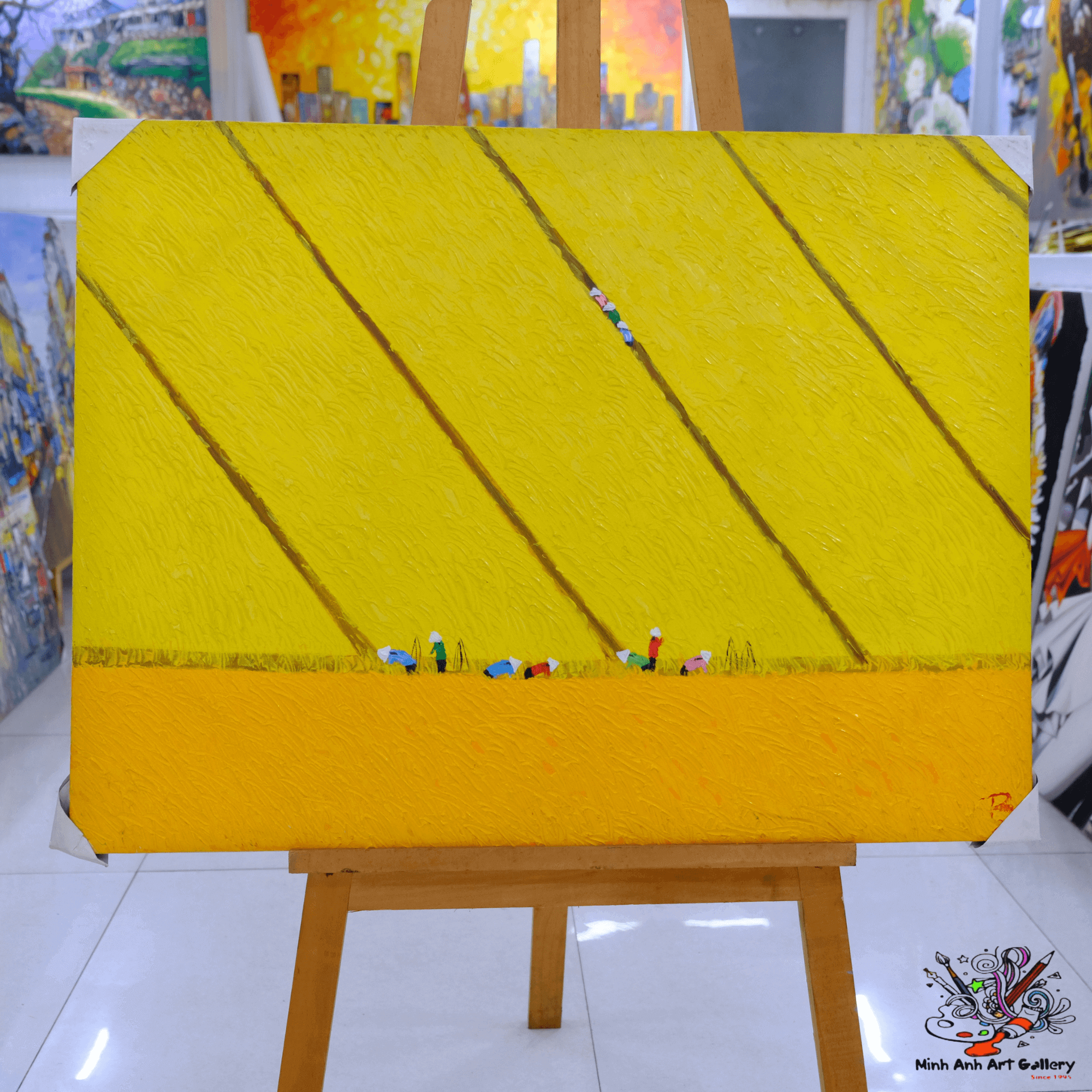


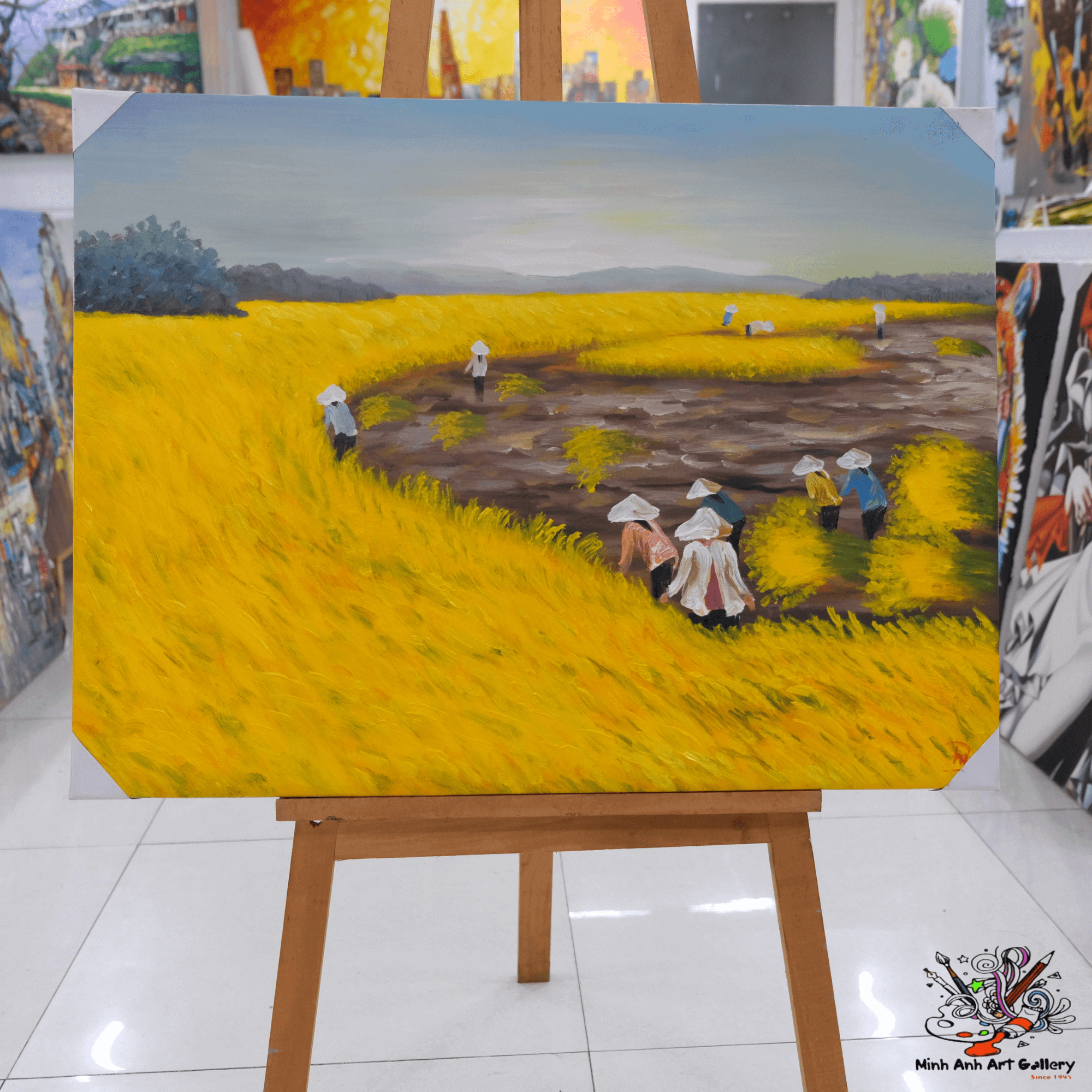
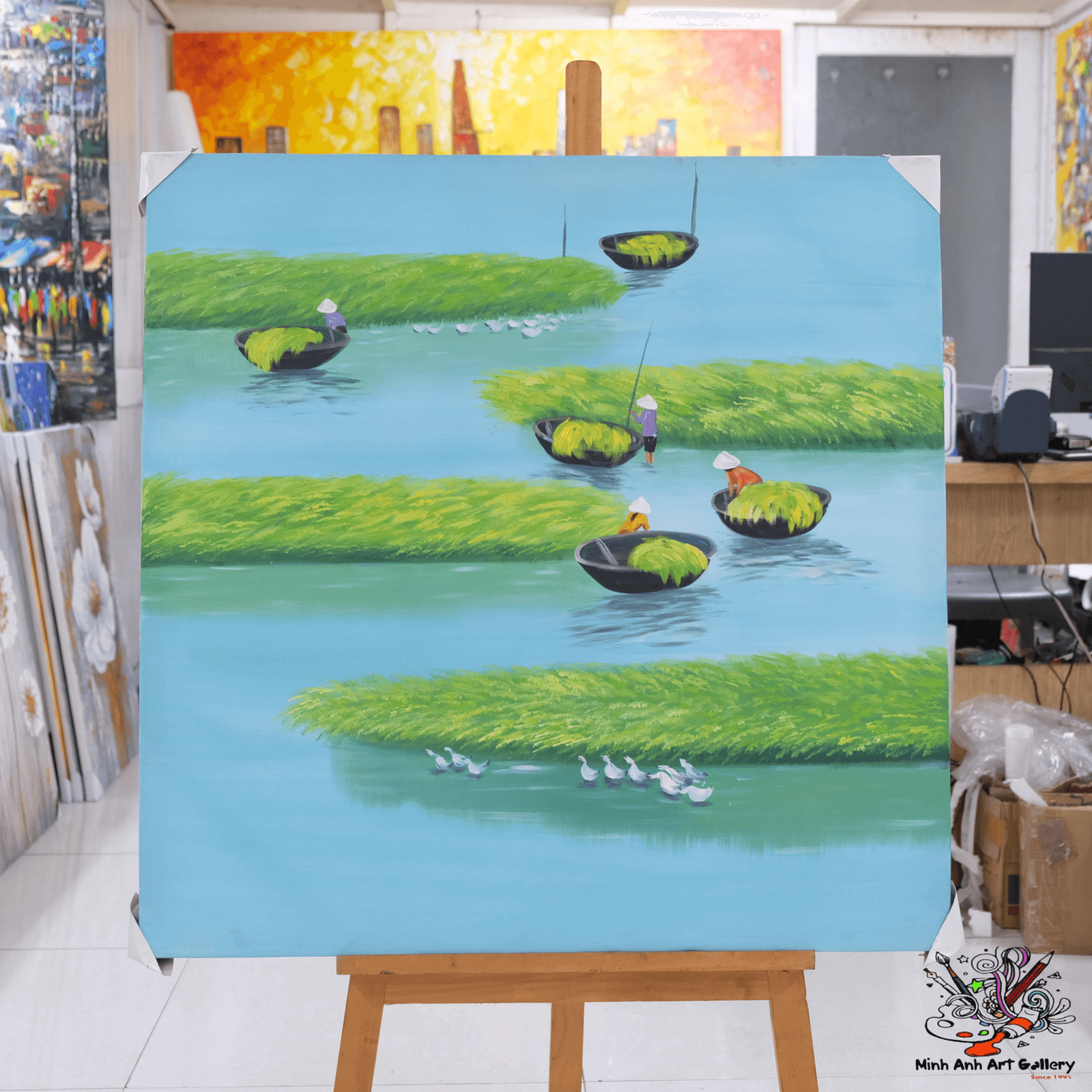
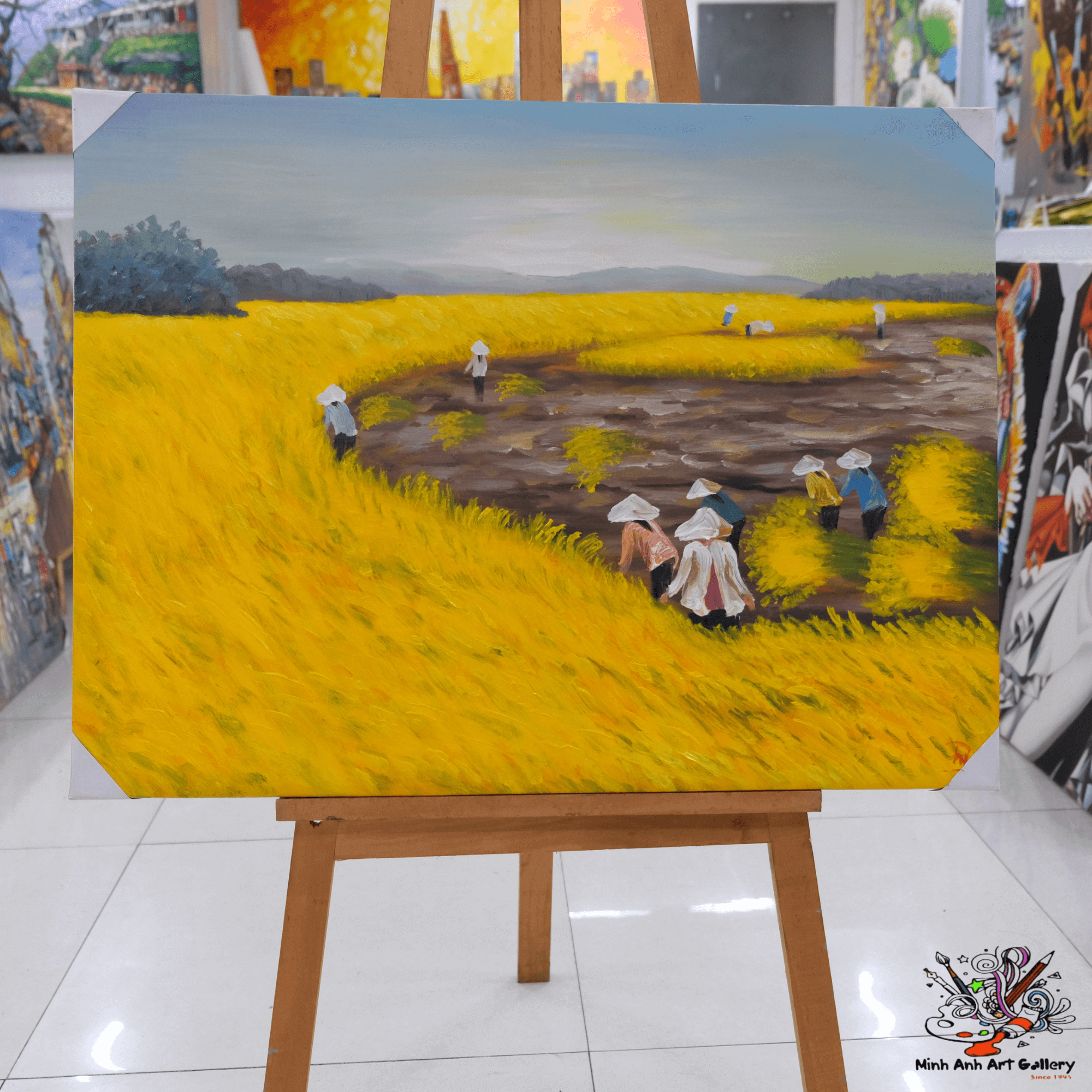
Vietnam has always been more than just bustling cities and delicious street food. It’s a country where art breathes through its landscapes, especially through the lush green rice paddies that stretch to the horizon. One of the most poetic expressions of this beauty is the Vietnam rice field painting, a serene visual escape into the heart of the Vietnamese countryside.
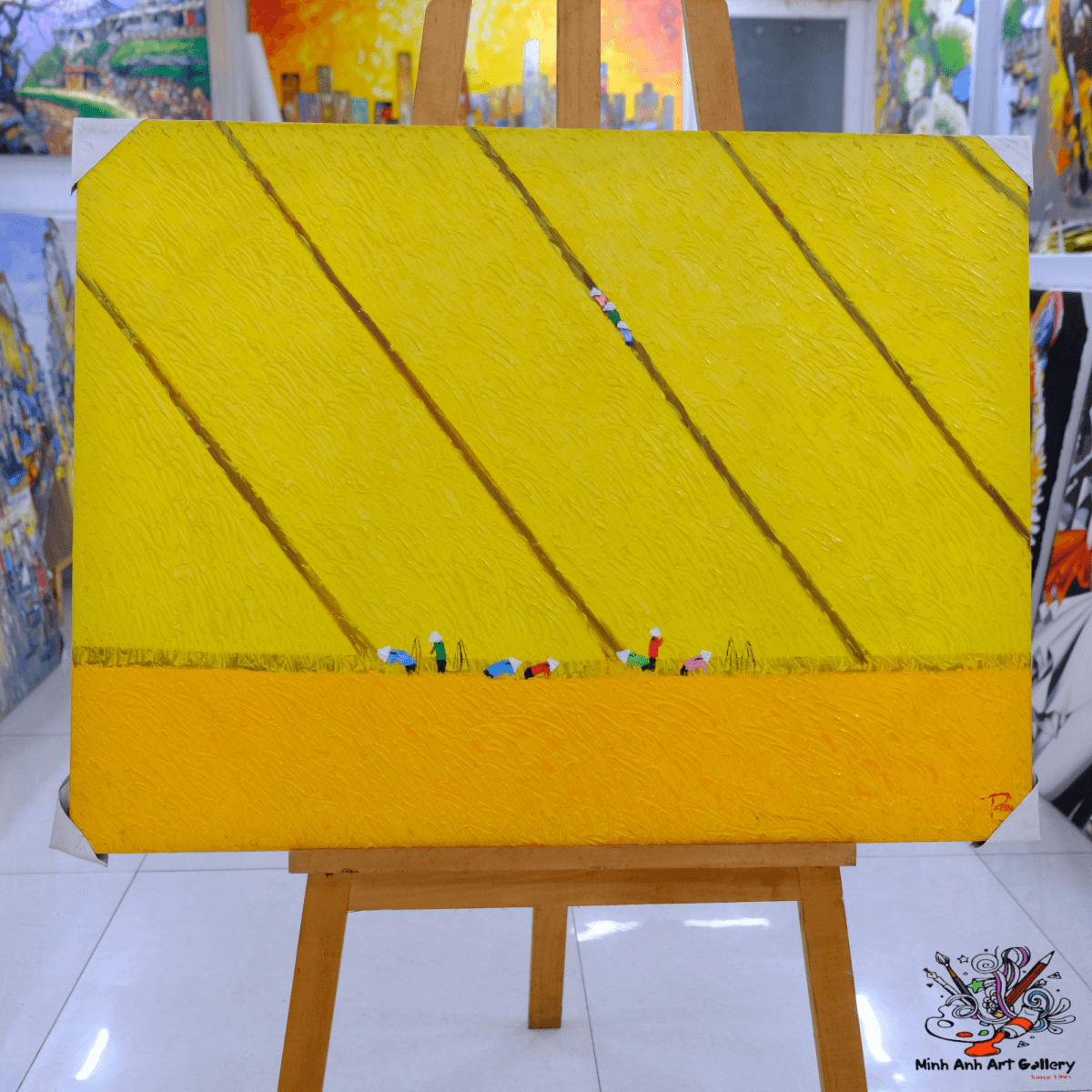
Art in Vietnam has long mirrored the daily lives of its people. And since rice farming is the heartbeat of rural Vietnam, it’s no surprise that Vietnam rice paddy art emerged as a powerful theme. Generations of artists have taken inspiration from the timeless dance of farmers tending to fields and the layered textures of the countryside.
Rice isn’t just food in Vietnam — it’s a symbol of prosperity, unity, and heritage. To paint rice fields is to honor the backbone of a nation. The spiritual connection between the land and its people is what gives Vietnam rural landscape painting such deep emotional resonance.
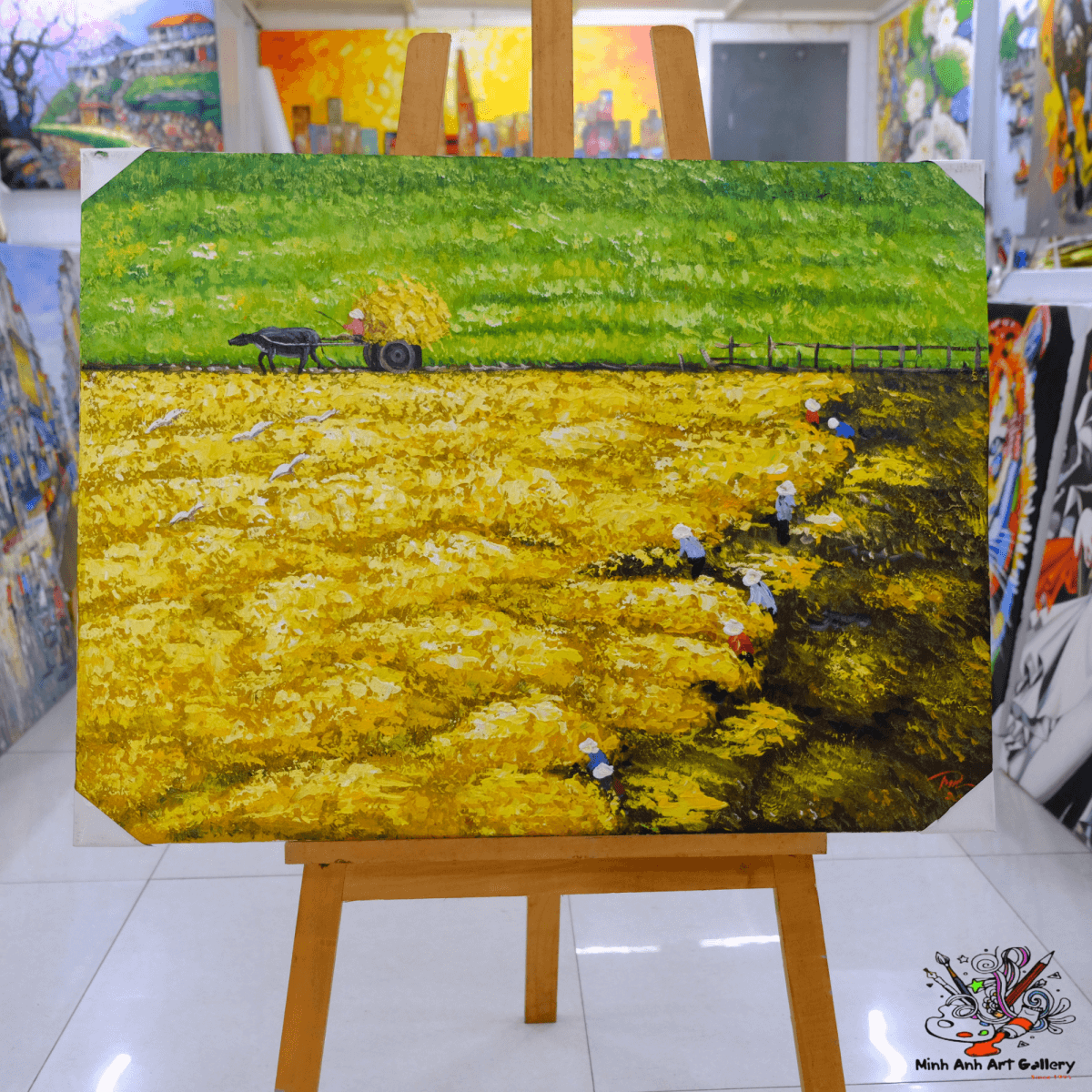
There’s something meditative about rows of emerald green fields swaying with the breeze. Artists find peace in capturing that stillness. It’s a place where sky, earth, and water flow together, creating a calming rhythm perfect for canvas.
The recurring image of rice fields in paintings represents not only visual beauty but also the tradition of self-sustenance, seasonal change, and ancestral wisdom. It’s why these pieces strike a chord even with those who've never stepped into a field.
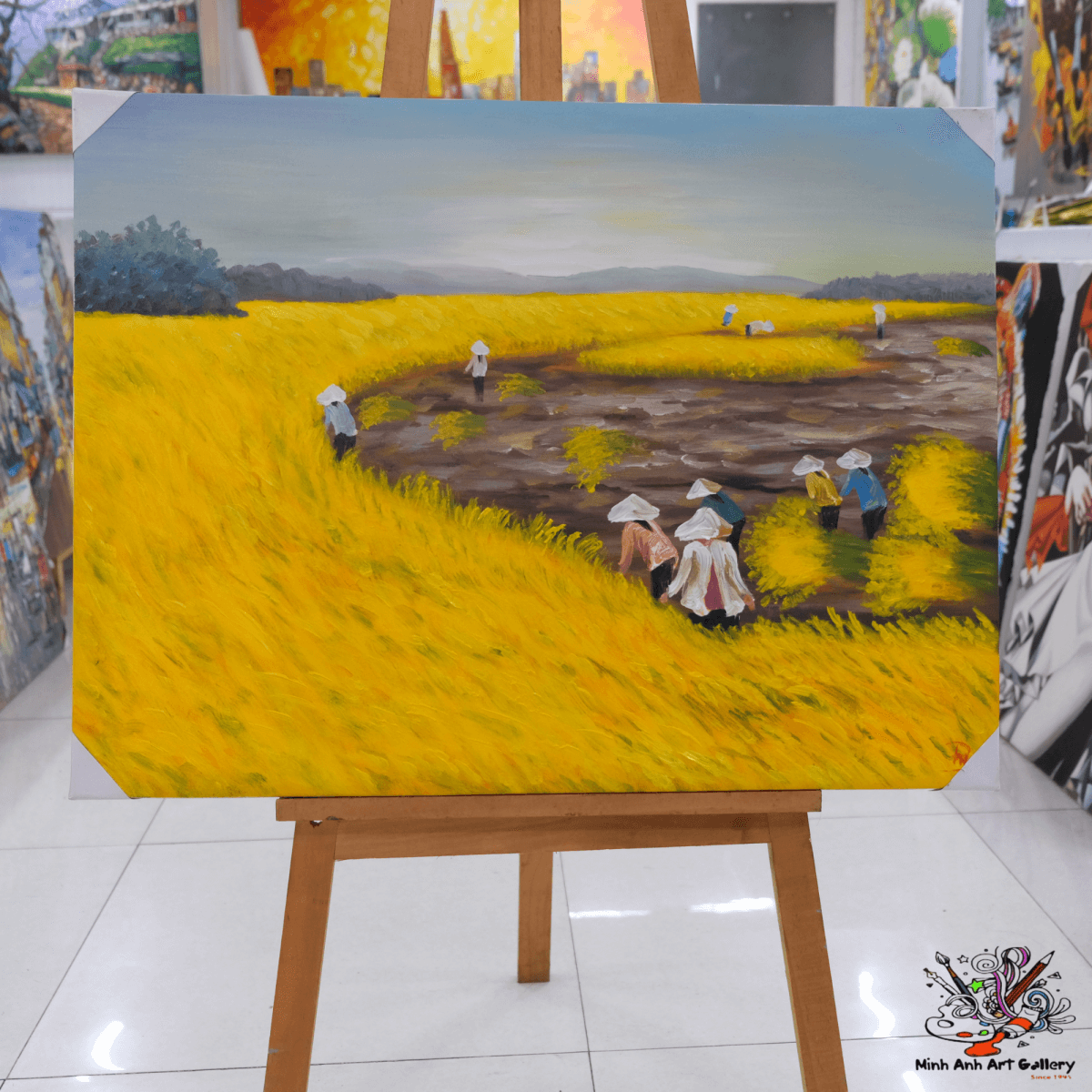
The most common style is realism—depicting rice fields with photographic precision. These pieces make viewers feel like they could step right into the scene. Every blade of grass, every water reflection is painted with meticulous care.
Some artists lean into impressionism, where the light and mood of the rice paddies are more important than detail. Soft brush strokes, gentle colors, and hazy outlines bring a dreamlike feel to the fields.
In contrast, modern Vietnam city artists are also experimenting with abstract versions of rice terrace painting Vietnam. These works use bold strokes, geometric shapes, and vibrant palettes to reinterpret ancient landscapes in a new light.
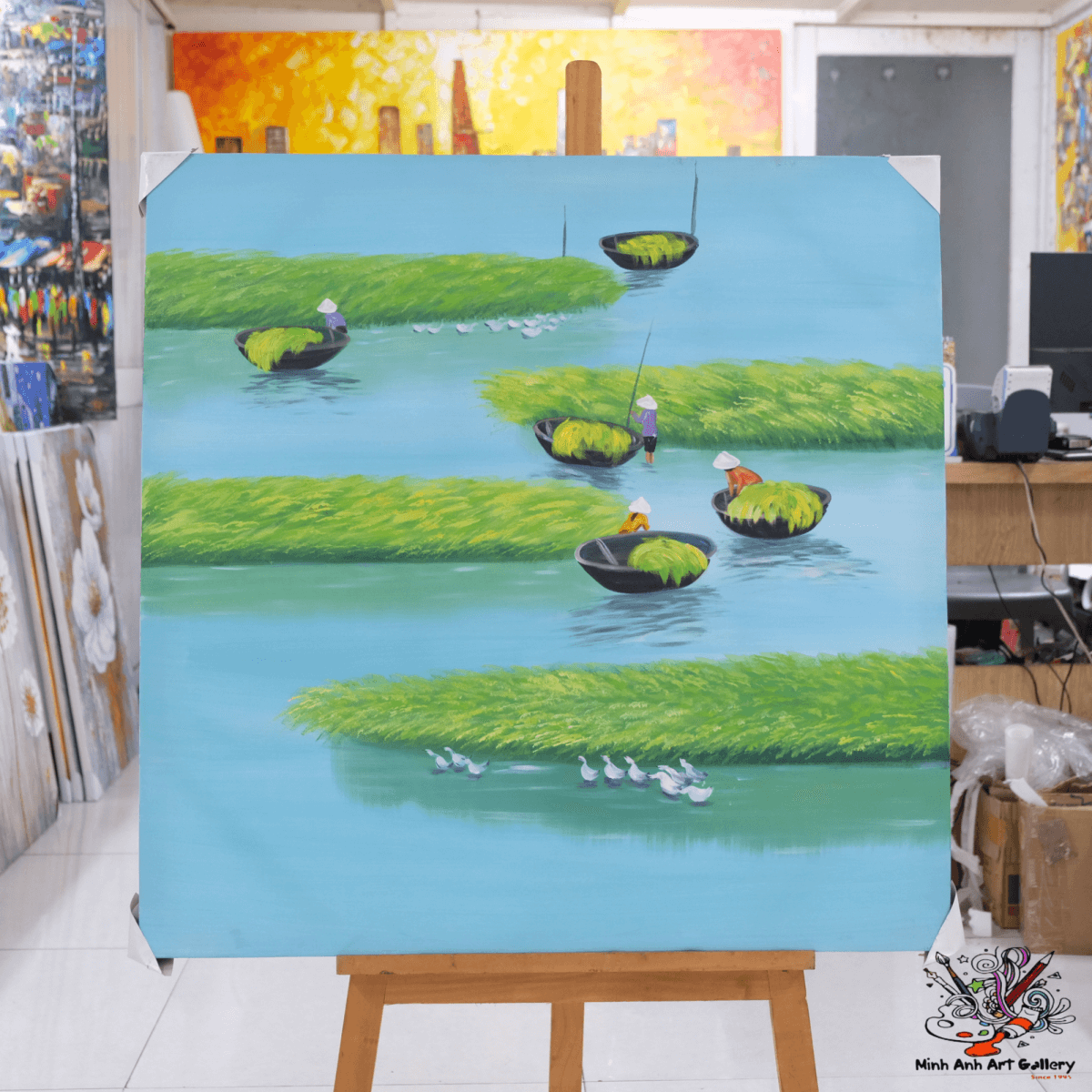
Traditional Vietnamese paintings often use silk, lacquer, or canvas. Artists today may mix techniques — oil on canvas is common for Vietnam countryside canvas art sold internationally. The choice of material affects how the colors and textures come to life.
Golden hues during harvest, vivid greens in planting season, or misty blues in early morning scenes — every color tells a story. Artists use a variety of brush types to capture everything from fine rice stalks to the wide, panoramic skies.
Depicting men and women planting, harvesting, or guiding water buffalo through the mud adds human warmth and movement to these serene landscapes. These scenes pay tribute to the labor and love poured into the land.
Sunsets bring out the best of Vietnam’s natural beauty. The layered terraces catch the golden rays, creating a magical effect that makes these paintings incredibly popular with collectors.
One of the reasons Vietnam rice paddy art stays fresh is its ability to showcase seasonal shifts — from the young green shoots to the golden fields ready for harvest. Each season offers a new visual feast.
Northern Vietnam boasts the stunning rice terraces of Sapa and Mu Cang Chai, carved into mountainsides like natural sculptures. Artists often travel there to sketch and photograph, later turning those moments into unforgettable pieces of art.
Unlike flat fields, terraced landscapes require special artistic techniques to convey depth and elevation. Skilled painters use layering, vanishing points, and light gradients to bring these dramatic landscapes to life.
In the age of fast living, more homeowners are embracing nature-inspired art to bring peace into their homes. Vietnam countryside canvas art fits beautifully into minimalist and boho interiors, making it a favorite choice for global décor lovers.
For overseas Vietnamese, these paintings are more than decoration — they’re windows into childhood memories and family heritage. They often gift these artworks during holidays or use them to reconnect with their cultural identity.
Authentic paintings often include a signature, certificate of authenticity, or gallery stamp. Real artists don’t copy; they tell their own version of the landscape. The texture, brush strokes, and material are key indicators.
While you might find paintings at local markets in Hanoi or Ho Chi Minh City, for those abroad, galleries like Minh Anh’s Collection offer easy online access to authentic countryside art.
At Minh Anh Art Gallery, we take pride in offering a thoughtfully curated art collection gallery featuring Vietnam’s most peaceful scenes. Our pieces are not mass-produced — they’re stories painted with love by real Vietnamese artists.
Every painting you buy from Minh Anh supports local artists and their families. We believe in keeping Vietnamese rural art alive, not just as décor but as cultural heritage passed down on canvas.
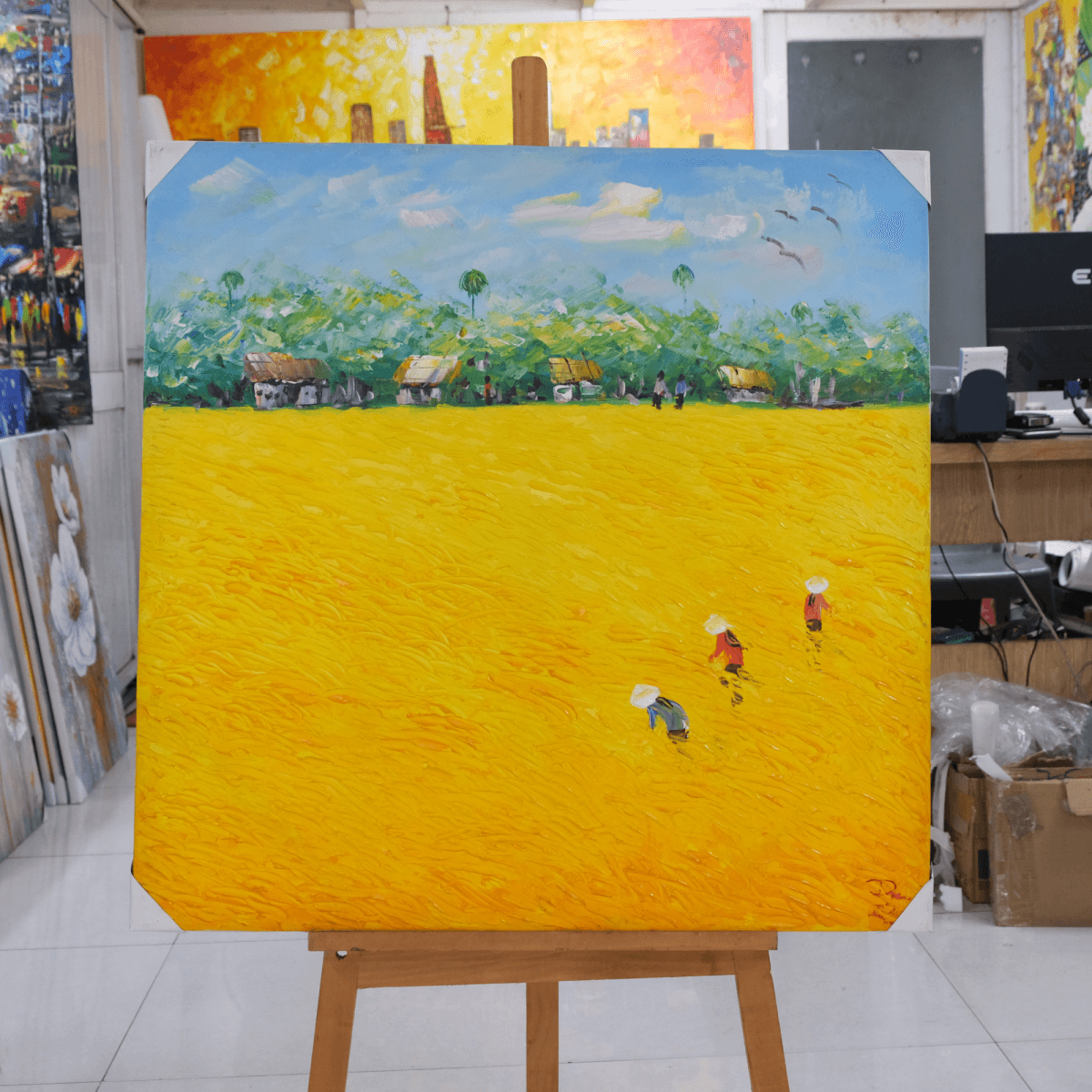
To hang a Vietnam rice field painting on your wall is to own a slice of calm, culture, and tradition. It's not just a picture — it's a story told through texture, light, and memory. Whether you're drawn by nostalgia, artistic admiration, or simply love the peaceful vibe, these paintings offer something timeless.
At Minh Anh Art Gallery, we invite you to explore our full art collection online and find the piece that speaks to your soul.
1. What is the average price of a Vietnam rice field painting?
Prices vary, but authentic hand-painted pieces usually range from $50 to several hundred dollars depending on size, style, and artist.
2. Are these paintings available internationally?
Yes! Galleries like Minh Anh Art Gallery ship worldwide through their art collection online.
3. Can I request a custom rice field painting?
Absolutely. Many Vietnamese artists take custom orders. Reach out to Minh Anh to commission your own piece.
4. Are the rice field paintings all done in oil?
Not always. Some are acrylic, watercolor, or lacquer-based. Oil is most common for rich, long-lasting color.
5. How should I frame my countryside canvas art?
A minimalist wooden or black frame often works best, letting the painting shine without distraction.
Minh Anh Art
Explore the soul of Vietnam through the strokes of its countryside. Shop directly from Minh Anh Art Gallery at https://minhanhart.vn/ and bring tradition to your walls.
Gallery: 101 Bui Vien St, District 1, Ho Chi Minh City, Viet Nam
Phone: (+84) 962 720 484
Email: minhanhart.vn@gmail.com